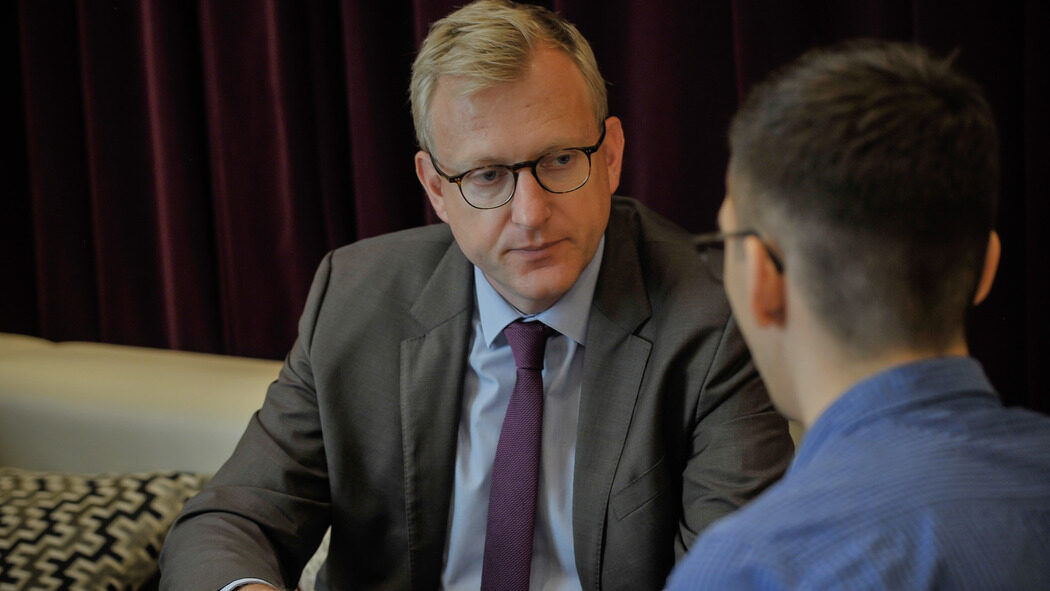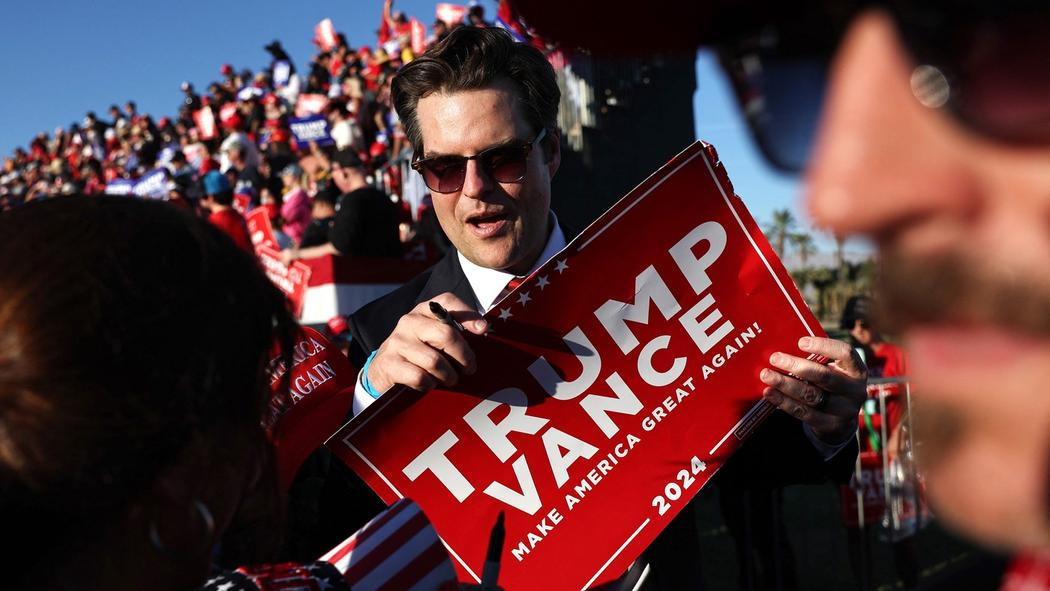Steven Blockmans is Director of Research at CEPS, the leading think tank and forum for debate on EU affairs based in Brussels. He is also member of the International Program Board, which prepares the annual Prague European Summit, a meeting of leading European research and political figures. The event will take place in Prague from 12 to 14 July 2021.
The EU - Russia relationship has never been worse since the collapse of the Soviet union. The reasons for this are obvious on the Russian side – sliding towards authoritarian regime and losing economic ground leads to accusing hypothetical enemies. Do you agree? Has the EU itself contributed to this degradation? If yes, was it by activity or inaction?
Since the advent of Mr. Putin, who rose from the Soviet KGB and the environment of corrupt leaders in St Petersburg to the highest ranks of the Kremlin and the presidency, Russia has seen a gradual tightening of the grip the secret services have on the political system as well as the main economic operators in the country. Mr Putin has created a vertical police state with the intention of securing his own and his cronies’ interests and prolonging the system as long as possible. No wonder then that he feels obliged to clamp down on any adversaries, domestic as well as foreign, which he finds obstructing his path. All this has been well documented since the collapse of the Soviet Union by several independent investigative journalists, up to the latest spectacular video by Alexei Navalny and his team.
Now - the EU is of course a completely different animal in the ZOO of geopolitics. One could say tthe EU has in its DNA the quest for multilateral solutions based on a rules-based international order. It is diametrically opposed to the modus operandi of the Kremlin. It´s therefore no surprise that because of the different principles and methods, these two types of power will be at loggerheads when dealing with overlapping issues. The EU is ill equipped to deal with autocratic and kleptocratic regimes both within the Union as well as outside of it. And it is learning it the hard way, slowly, but I hope surely.
The world seems to be splitting along a geopolitical divide, pitching democracies against autocracies. This has become more evident since the arrival of Joe Biden to the White House. This split will I think only worsen and Putin will contribute to that, being trapped in his confrontational logic.
Has the EU contributed to this worsening situation? There are people who claim that the EU has been strategically myopic in reading the true intentions and also limitations within which the Putin regime acts domestically and internationally. Negotiating the association agreements which include deep and comprehensive free trade arrangements with Georgia, Moldova and in particular Ukraine has at the time provoked the Russian bear. When Putin belatedly realised what type of western orientation – politically, economically, regulatory – these countries would take by signing these agreements, he reacted by reviving or triggering conflicts, in Georgia, in Transnistria and above all in Ukraine by seizing Crimea and destablising Donbas. Should the EU have taken more confidence building measures at the time? Should it have behaved in a different way? There were 28 member states with very different geopolitical and geoeconomic positions on relations with Russia, with long decision making process, mostly reactive and leading to the lowest common denominator EU position. It was perhaps a collective myopia. Not seeing things coming. The Baltic states and Poland were not able to convince Germany, France or Italy.
The Borrell visit to Moscow in February was widely considered as a disaster. Was it a mistake to go? What would have prevented the Russians from choosing this spiteful behaviour? Does Borrell represent the old school of „realpolitik“, which in Russian eyes is an outdated and naive approach?
First of all, Mr Borrell has a mandate from the European Council in the form of five guiding principles for the relations with Russia. One of them is the requirement that Russia engages in peaceful dialogue to resolve the Ukraine crisis, which is the main thorn in the relations between the two parties. Another guiding principle for Borrell is to define areas of selective engagement with Russia, and thus keep diplomatic channels open.
Secondly, was Borrell naive when being played by Lavrov at the now famous press conference? Yes. Should he have stood up to the accusations that Lavrov heaped on the EU? Yes. After all, Borrell is the High Representative of the European Union. The least we can expect as EU citizens is that the high representative defends the values and the principles for which the EU stands. And there Borrell clearly fell short of expectations.
He could have anticipated better. There were a number of statements in the preceding months, both by Lavrov himself, by Medvedev and other high ranking Russian officials stating that the EU as a supranational organisations does not have either the legitimacy or the leadership empowering it to deal with Russia, which has been rather efficiently trying to reassert its geopolitical power over the last months and years by means of its aggressive foreign policy. The denial by Lavrov and others of the multilateral framework that the EU represents shows contempt for the existing rules-based international order, which Russian as well as Chinese leaderships want to rewrite in order to protect their own positions. Borrell should have been ready for all that. He should have seen it coming and should have had a response.
Would you expect the forthcoming summit Biden-Putin to repair Russia's relationship with the West? Why would Russia want to stop its provocative behaviour?
It is going to be a testing experience for Mr Putin to deal with a much stronger rival in the White House who has been very clear of what he thinks of Putin himself: “a killer”. I expect Joe Biden to reaffirm his accusations and seek clarification in Russia´s involvement in a multitude of cyberattacks and disinformation campaigns undermining the democratic institutions in the US. I do not a priori expect any defrosting happening between the US and Russia. With perhaps one nuance – the major future confrontation for the United States is not going to be Russia, but China. Biden might therefore be trying to weaken the axis which is developing between Moscow and Beijing. This might be a reason why he would not opt for a full frontal confrontation with Putin, but try to find a new modus vivendi, without putting the highly irritant US-Russia relations off the high priority list.
And Europe in all that?
Russia has always been trying to divide the EU internally, as much as it can. It does so by playing with the interests of individual member states. Germany has always been in the middle and will probably remain so after Merkel leaves office. The Nord Stream II pipeline will remain an irritant for the US as well as for EU unity, which benefits Russia to a certain extent. Macron is of course trying to seek openings with Russia, perhaps for his own glorification. On the other hand the Baltic states, Poland and now even the Czech Republic are pushing for a more assertive position by the EU. We can expect Russia to continue playing EU countries against each other as well as trying to divide the transatlantic alliance.
The Czech republic has requested all Member States to expel Russian diplomats as a part of the common response after the discovery of the GRU involvement in the Vrbětice arms depot blast in 2014. Why were the majority of “old” Member States reluctant? The same countries introduced this type of measures reacting to the Skripal case. Despite the fact that the UK was already quitting the EU. Has the message from Prague been unclear? Or did the different appreciation by president Zeman play a role?
The message from Prague was not blurred. Mr Babiš and the foreign minister were very clear in their messaging. And by now everyone in Brussels knows how to read the president. That might have been different a couple of years ago, but it no longer is. The response was not so collective as in the Skripal case, but a number of countries – Slovakia, the Baltic states, Romania, Bulgaria – expelled Russian diplomats as an expression of solidarity with the Czech Republic. There were strong statements on behalf of the EU institutions. But yes, you are right, we have not seen the same pattern of massive expulsions from western EU countries. Apart from the general softer line toed by western EU countries vis-à-vis Russia, frankly I do not know how to read the reluctance of „old“ Europe in showing more active solidarity with Czechia.
At the same time it is should be said that Prague has long been a nest for Russian spying activity in Central and Eastern Europe and towards Germany; this was well known across Europe. The inflated size of the Russian embassy, with so many „cultural attachés“, was simply not credible. Everyone knew that those so-called diplomats were in fact spies whose real tasks include to track, tail and incapacitate people and activities which are contrary to the Kremlin’s interests.
Curbing espionage by hostile countries on European territory happens in a largely uncoordinated manner. There are just two bodies in the EU external action service, one for civil and another for military intelligence, which are very small and paralysed by the fact that the member states themselves do not trust the EU institutions when sharing secrets and communications. As long as the EU suffers from underfunded and not sufficiently interoperable systems to secure encrypted messaging, its coordination of the national intelligence services will continue to fall short of what it could do. This is of course true concerning the Czech or Bulgarian explosions of military depots, but also for instance to the latest interception of the Ryanair flight by Belarus – it is clear that the Belarusian KGB had been tailing Raman Pratasevich already in Athens. Were the Greek services aware? If so, then the information could have been shared with their Lithuanian and other European counterparts.
Russia has always been trying to divide the EU internally, as much as it can.
How do you evaluate the EU response to the hijacking of the Ryanair plane by Belarus authorities? What more can the EU do to support the Belarusian civil society opposition? Would you consider the incident as a test balloon organised by Russia, to check the EU response?
The swift show of EU unity is rare and should be applauded. The unanimous decision means that it included Cyprus, which had previously taken the rest of the member states hostage by making the decision of sanctions against Belarus conditional on the simultaneous adoption of sanctions against Turkey, but also Hungary, which has blocked this type of EU common policy positions before. The European Council came up with a reasonably good mix of restrictive measures which have to be fleshed out by EU bodies at lower level; that discussion is going on now. Lukashenko and 60 of his cronies have already been targeted for their crackdown on pro-democracy protesters and on independent media since the presidential elections last year. Now the EU proposes to go beyond that - it is up to the EU governments to decide where to hit Lukashenko so that it hurts. People have suggested sales of petrol, or potassium based fertilisers, which represent a large part of the revenues of the regime. If these economic measures are adopted, it is up to the individual member states, which have the administrative capacity, to enforce those sanctions.
Could and should the EU go further? I would say yes. Downgrading diplomatic relations would have been an obvious choice to make. Instead of just expressing solidarity with Latvia, which had diplomats expelled from Belarus, the European Council should have been more prescriptive. Downgrading the status of Belarusian diplomatic representations in EU countries would not only be a signal of support to the democratic opposition – which are by the way the more legitimate representatives of the people of Belarus. It would also clip the wings of the KGB operatives who are being offered diplomatic protection and immunity at Belarusian embassies across Europe.
We don’t know whether Lukashenko ordered the diversion of the Rynair flight after having obtained the backing of Russia. But in the end this is immaterial. After all, Putin clearly showed his ‘bromance’ when Lukashenko visited him in Sochi shortly after the incident.
The EU-China investment deal is in jeopardy, blocked by the EP. Is it a typical case of moral conflict between economic needs and safeguard of values and principles? China behaves as if the agreement was not important; otherwise it would not have reacted to the EU sanctions in such a disproportionate way. Is the deal really so good for EU companies? Will it be a big economic loss not to have it?
The deal was rushed at the end of last year with heavy German insistence and with the obvious usage of the axis existing between Bundeskanzlerin Angela Merkel and her former defence minister, now European Commission President Ursula von der Leyen. Other highly placed Germans, in particular in DG Trade, were also useful. The aim of the operation was to secure commercial interests of German companies, with the collusion of the Commission; Macron was co-opted, lured by the prospect of solemn signing of the comprehensive agreement on investment during the French presidency of the Council of the EU in 2022, while securing French business interests as well.
China made some concessions at the end of the negotiation, trying to conclude this deal not only to meet the deadline, which had been preset a year earlier, but also to anticipate the incoming Biden administration and the potential confusion that it might create in European minds. But the negotiations were rushed by both sides. If you read the text of the draft agreement carefully, it becomes clear that it was produced under pressure. There is, for example, a really staggering element in the annex which, if ratified, would even hurt the German and French political interests in China. I refer to the provision stating that non-governmental organisations from the EU, including therefore German political foundations like the Friedrich Ebert Stiftung and the Konrad Adenauer Stiftung, which have representations in China, should be basically managed by Chinese citizens.
Where is the ratification process of the agreement going? You have seen the exchange of sanctions. The EU targeting three people directly responsible for crimes against humanity in the Xinjiang province and China retaliating with sanctions which were much more sweeping, including academics and think tankers, as well as a number of MEPs, meaning politicians who will ultimately have to ratify the deal. Was it an overreaction, a miscalculation by Beijing? Or was the intention to send a message to the Europeans: You need this deal more than we do? If the Chinese are willing to risk what eventually is the most high profile contractual arrangement that they could have, then it shows that they do not want to nurture this relationship with the EU as one between two equal powers on the global stage. It rather means that they see the EU and its individual member states as subsidiaries to Washington, which in Chinese eyes is the only real power at equal level.
On the EU side the European Parliament has now adopted a resolution stating that it will not be discussing the draft investment agreement any further and the Commission has announced that it will not engage in any strategic communication or diplomatic activity to promote the EU-China deal. The agreement is thus in the freezer, at least as long as the Chinese do not lift their sanctions. Nevertheless I do not think that the document is irreparably damaged. It might be resurrected when sanctions are lifted. But even then the EP and the Commission will be watching closely whether China will take every possible step to signing the ILO conventions on forced labour. Fulfilling this promise will anyway be challenging, as forced labour duty is a punishment foreseen by the Chinese criminal code. China will have to change the criminal law as well as the penitentiary system, which is a massive task in itself. So if China wants to show that it is serious about concluding the deal, the supplementary delay resulting from the adoption of sanctions may help it to prepare the ground.
Concerning the conflict of interest question, the good news is that Mr Babiš is now under close scrutiny.
With more assertive Russia and China, the international environment is not very comfortable for the EU. But then you have the case of Hungary which sides with these two powers more and more often and disables the EU to reach common positions. Do you think that the „moment of truth“ is approaching in the EU-Hungary standoff? What can bet he outcome? Can this experience lead to effective abandon of the unanimity rule in foreign relations decisions, fully or partially?
I am not that optimistic, but there is hope. The EU is basically built on buying time and taking a step by step approach. Spillover effects are created in a functional way. With elections looming on the horizon in Hungary in 2022, a showdown is not to be expected. After the last couple of vetoes by Hungary in foreign affairs matters, the High Representative Josep Borrell has already indicated that the other 26 countries might nevertheless go ahead and adopt decisions outside the framework of the treaty, thus isolating Hungary. That might be the provisional way forward. Then you have the glimmer of hope of the Hungarian opposition uniting and the Mayor of Budapest being able to effectively challenge Viktor Orban. In any case we should not be expecting any change of approach before the 2022 elections.
Nor should we be expecting any treaty change amending the consensus building decision making in the Council of the EU, which – formally speaking – is still based on unanimity. The divisions between member states are too deep and too wide to agree on any treaty change that would redistribute power among them. I do not see that happening.
This being said, it is quite probable that the Hungarian and also Polish case will become more prominent in the European Parliament. While pre-electoral Germany and France will be pre-occupied with their domestic political transition in the months to come, there are many MEPs keen to make their voices heard, above all some of the new ones from the last election in 2019, who have just about learned the rules of the game. It can be expected that the EP will be louder on these things now, naming and shaming. The question remains whether it will be heard by the member states who have the real decision-making power.
In the context of the covid crisis the EU has introduced new legislation which can lead to closing the EU budget for countries in breach of the Rule of Law principles. Hungary and to a certain extent Poland already match these new criteria. Many MEPs now demand that the rules should be applied also to the Czech Republic, because of the conflict of interest of its prime minister Andrej Babiš. Would you agree? Would you say that this case also demonstrates a systemic problem? Do you expect the new mechanism to be used against Budapest and Warsaw and how?
For the time being it is not happening. On the contrary – under the German presidency the EU again kicked the can down the road. A regulation on applying rule of law conditionality was negotiated and concluded between the EP and the Council already last year. But, upon the request of the European Council, the Commission delayed its application. Something unheard of in the EU practice. As the guardian of the treaties the European Commission should do its job and it should do so immediately. As it is not being done, EU money will continue disappearing in private pockets, in particular in Hungary. Only a properly functioning Commission can challenge this behaviour. I continue to think that the EU public prosecutor office, which has just started functioning at the beginning of June, should and will get involved in the rule of law conditionality mechanism. But I am afraid that all this might be too little and too late, in particular in the Hungarian case.
Concerning the conflict of interest question, the good news is that Mr Babiš is now under close scrutiny. There is ample evidence that many of his businesses and trust funds are absorbing EU money. One can only hope that now, when there is a publicly announced proof of the conflict of interest, it will lead to the clawback of the funding which had been misappropriated.







